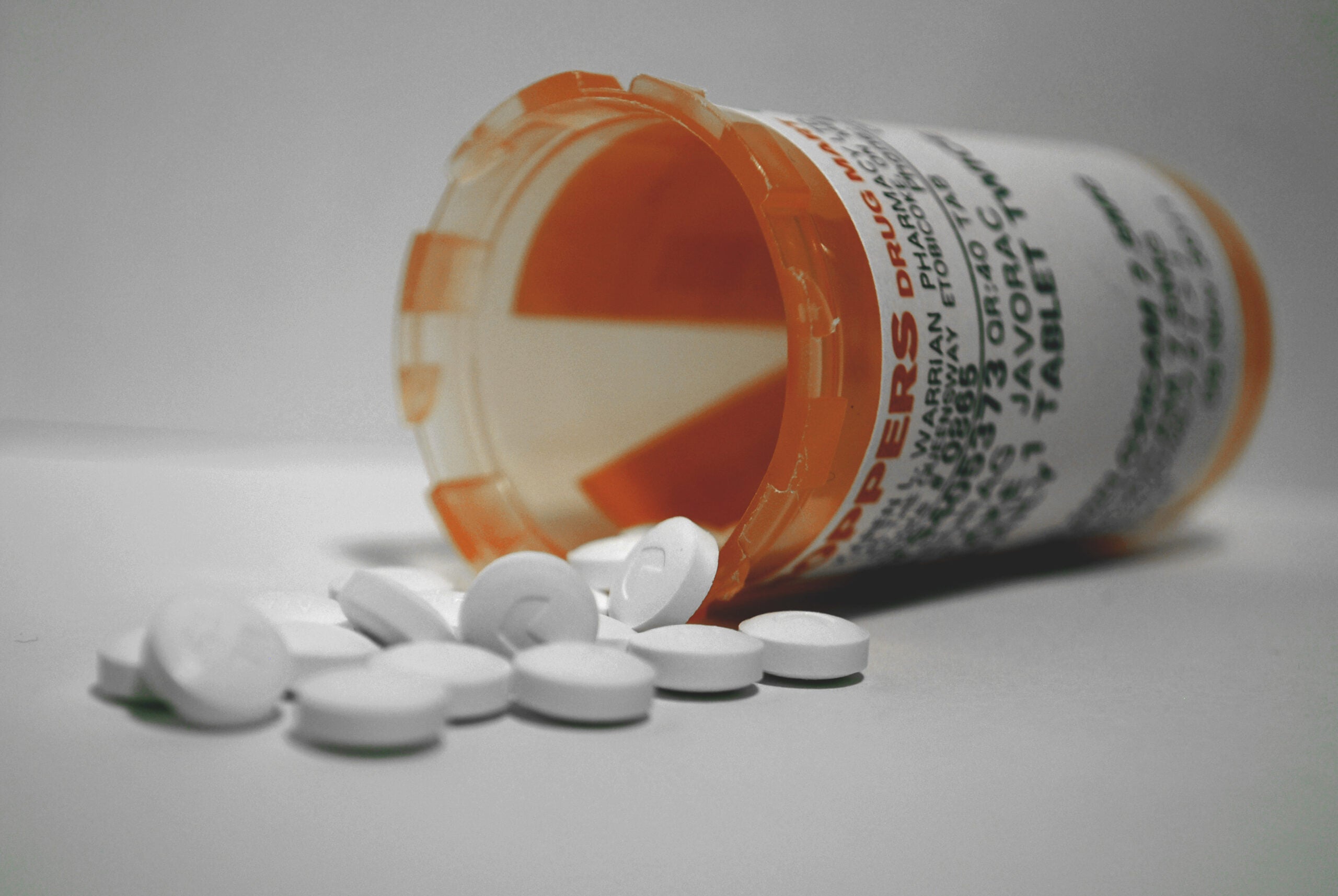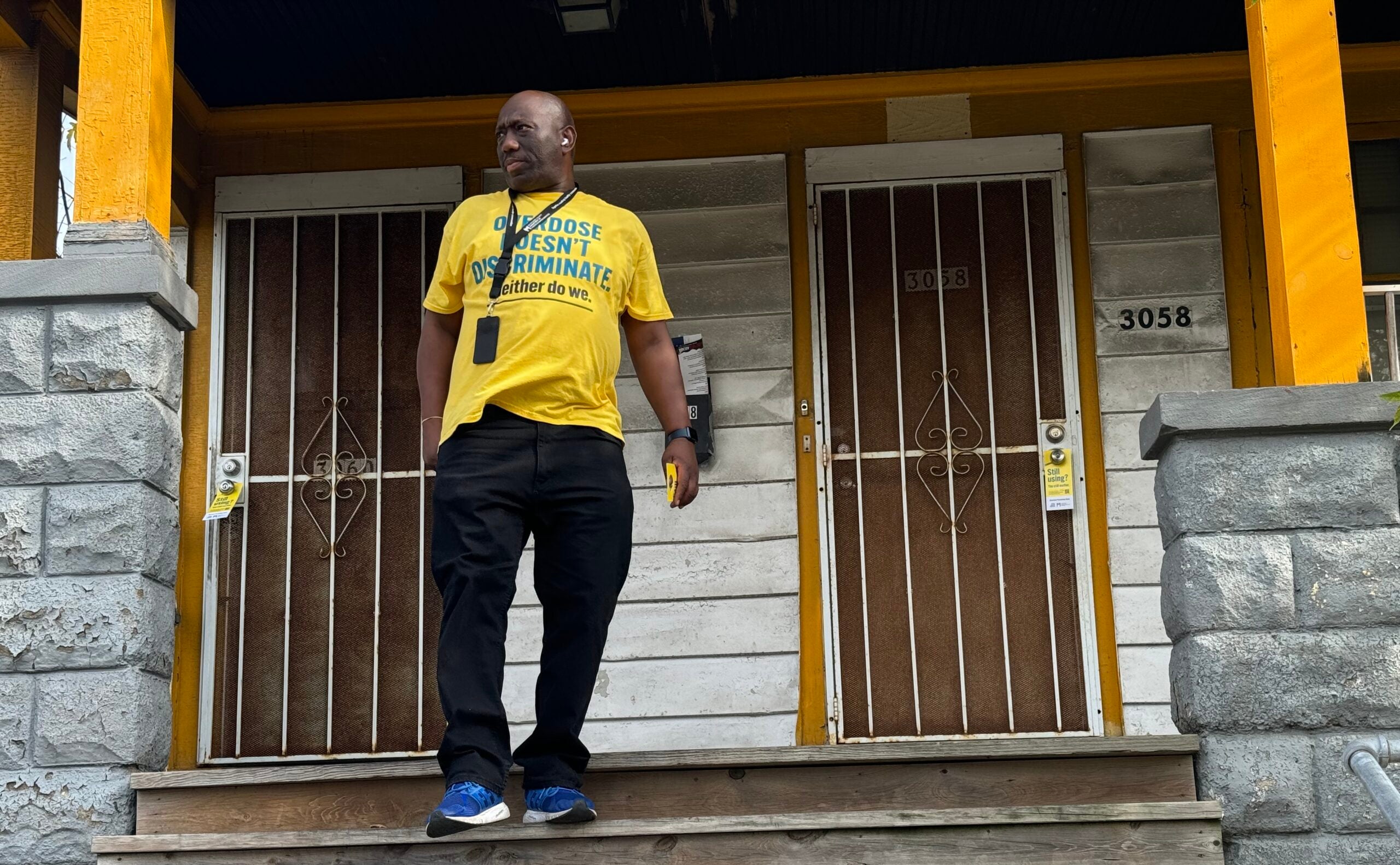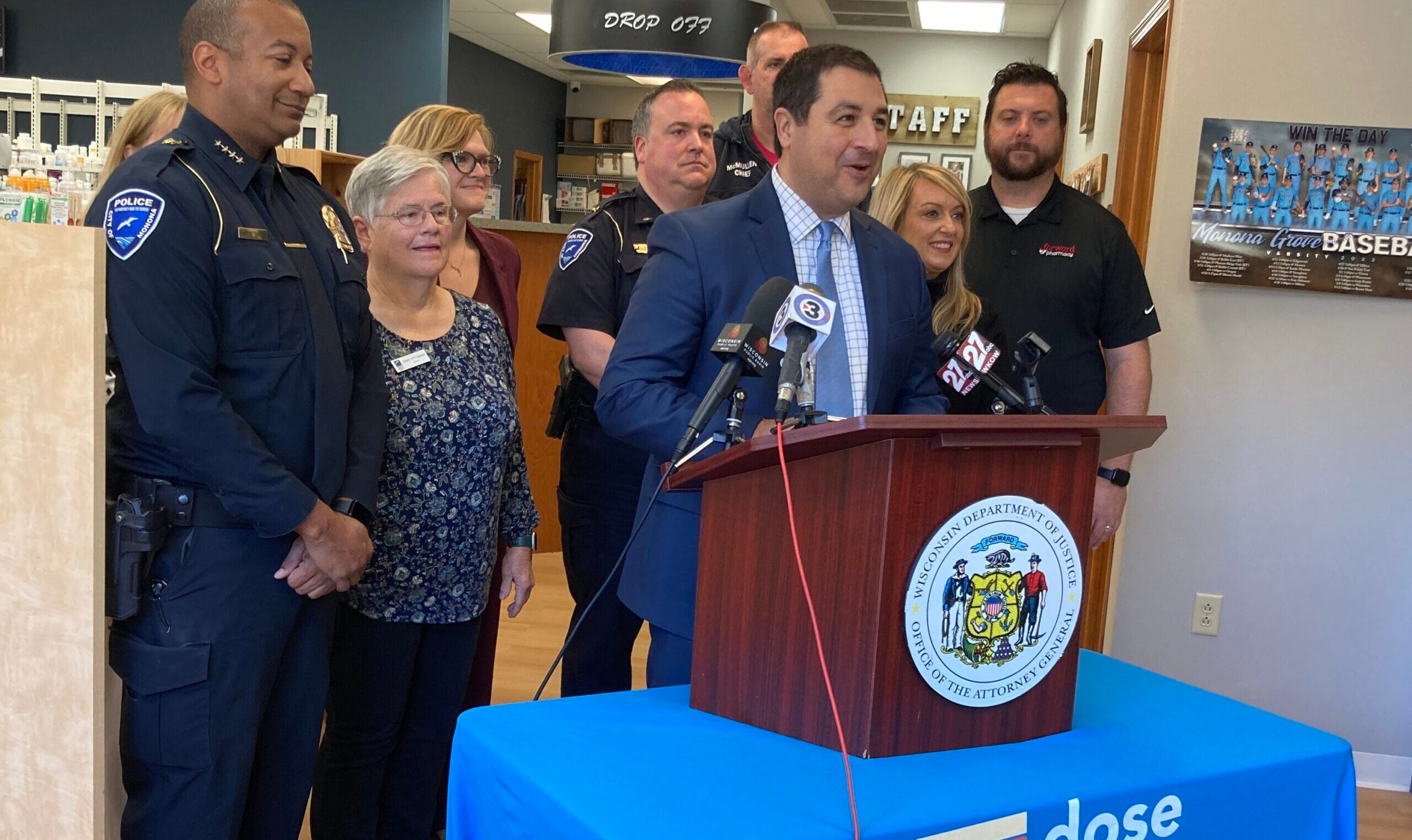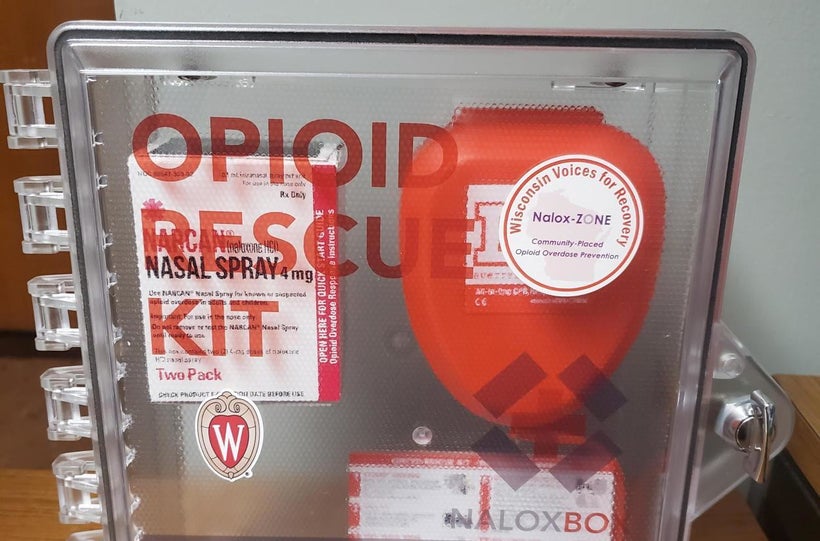For the past nine years, communities across the country have collected unwanted medication. The much-publicized Prescription Drug Take-Back Day, which occurs Oct. 17 in Wisconsin, is a way to prevent diversion and abuse of prescription painkillers.
A related effort to allow pharmacies to take back unwanted prescriptions year-round was highly touted when announced last year by the Drug Enforcement Agency. But since then, few pharmacies in Wisconsin have signed on to the program.
According to the state attorney general’s office, 70 percent of people abusing prescription painkillers are getting them from family and friends. Pills left in a medicine cabinet can easily get in the wrong hands.
Stay informed on the latest news
Sign up for WPR’s email newsletter.
It’s led to what law enforcement and health officials say is an epidemic of legal and illegal drugs in Wisconsin and across the nation.
“It’s a huge problem,” said pharmacist Eric Hewitt, owner of the Medicine Shoppe Pharmacy in Monona.
Hewitt said he wants to do his part to fight not only prescription drug abuse, but heroin addiction as well. “A lot of that starts with prescription drug abuse,” he said.
So, on Take-Back Day Hewitt will collect unwanted medication, along with numerous police departments in the area.
Technically, under the DEA policy changes that went into effect last year, the pharmacy could do it every day. The federal agency allows retail pharmacies (along with hospitals and clinics) to use secure, mailbox-like drop-off containers to collect drugs. But Hewitt said he’s been reluctant to participate, in part because of cost.
“The pharmacy is the one that has to foot the bill for the cost of not only purchasing the box, but the special bags and containers that the medications have to be deposited in,” said Hewitt.
The New York Times reports that less than 1 percent of pharmacies in the U.S. have permanent disposal programs. In Wisconsin, federal officials say there are less than two dozen pharmacies participating.
For those fighting against opiate addiction like Cheryl Wittke, executive director of Safe Communities Madison-Dane County, the numbers aren’t encouraging.
“I think having drop boxes in pharmacies would be a great way to get more of these medicines out of people’s medicine cabinets,” Wittke said. “But I also understand the barriers that make that difficult for pharmacies.”
Some police departments will accept unwanted prescription drugs whenever a person wants to dispose of them, with the exception of illegal drugs. Wittke said Dane County has 13 such year-round drop-off locations.
Meanwhile, the Pharmacy Society of Wisconsin is educating its members about the year-round collection program.
“The interest is there, but the funding isn’t,” said Sara Sorum, vice president of professional and educational affairs for the society. “So PSW has been talking with policymakers about what some other states have done, to look at implementing grant programs to support pharmacists engaging in collection services.”
The permanent drop-off sites are convenient because there’s no set timeframe like there is for Take-Back Day. Both methods of collection take nearly all prescription medication.
However, Sorum said people tend to hoard painkillers.
“Your mom might want to hold on to that Vicodin pill that she got when she had her knee replaced,” Sorum said. “She doesn’t need it now, but what if she has a bad backache down the road? She hangs on to that pill and keeps it in her medicine cabinet, and that’s not coming back (through the collection programs).”
The DEA says nationally, more than 5 million pounds of prescription drugs have been collected in all its take-back events, but limited research suggests most of those drugs are noncontrolled substances like blood pressure medications and high-cholesterol drugs.
Wisconsin Public Radio, © Copyright 2025, Board of Regents of the University of Wisconsin System and Wisconsin Educational Communications Board.





